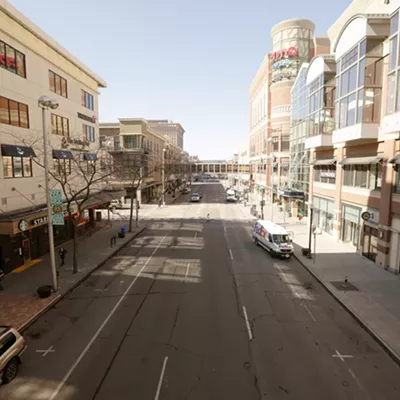That takes a crap ton of money.
The city's approved utility rates are set to expire by the end of 2024. In a 4-3 vote this week, the City Council approved rate increases for 2025 and 2026.
Next year, the average resident will see about a 5% increase to their bill, or a little over $7 per month. In 2026, an expected additional 5% increase will raise the average resident's city utility bill another $8.40 more per month. So, in two years, the average resident will pay about $16 more per month for water, sewer and garbage collection than they do now. Commercial users will see a slightly higher increase.
City Public Works Director Marlene Feist says the increases are necessary because annual rate increases for the past decade were limited to 2.9%, based on expected inflation. However, inflation increased more than expected, partially thanks to an unexpected pandemic. Now, city utility rates are about 8% behind the current operational costs.
The public works department is implementing other cost-saving measures and increasing other revenue streams so residential customers don't bear the brunt of rate increases. For example, by optimizing the use of a single chemical, the wastewater treatment plant was able to save $4 million.
In order to keep rates affordable for the most vulnerable users, the City Council also approved doubling discounts for seniors and people with disabilities, who will be able to save $20 a month by 2026. Additionally, the lowest 20% of water users will also see their discount double to $10 a month in two years.
WATER
Water bills are based on two charges — a monthly base charge and a usage charge. In 2025, the monthly base charge for water for residential users will increase 25 cents from $18.76 to $19.01.
Usage charges are determined by a tier system that measures water units — a unit is 100 cubic feet of water, or about 750 gallons.
In 2024, the first six units of water for Spokane residents cost 36 cents each. The next six units cost 76 cents each, and the next 12 units cost $1.02 each.
The first three tiers of water usage will not see any rate increases in 2025.
The median water usage in the city year round is seven units, though it goes up to 22 units in the summer. So in 2025, the average water bill would only see an increase of 25 cents from the base charge increase.
However, there are a few people in Spokane who use way more than 22 units. About 18% of residents use nearly half the total water consumption of residential customers. They average 75 units of water a month — that's 56,100 gallons every 30 days.
The usage rates of high volume customers will increase. For the fourth tier, which is between 26 and 45 units of water, rates will increase from $1.30 to $1.61 in 2025. For any units more than 45, each unit will cost $2.31 in the new year, up from $1.63.
The goal is to encourage water conservation while keeping necessary services affordable, says Feist, the public works director.
SOLID WASTE
Garbage cans will see the biggest rate change over the next two years, increasing by about 7% in 2025 alone.
Currently, collecting a typical 60-gallon brown garbage can costs $39.29 per month. That will increase to $42.04 next year and $44.98 in 2026.
There are, however, still ways to save.
Composting food scraps and yard waste is very beneficial to Spokane's Waste to Energy plant, which burns trash to produce electricity. Anything that's wet slows down that burning process. Diverting soggy kitchen waste, wet leaves or young plants out of the city's waste stream benefits the facility, and now benefits your pocketbook, too.
Starting in 2025, if you can downsize your 60-gallon bin to a 30-gallon bin and supplement it with a green composting bin, the two bins together will cost $41.23. That's about 80 cents less than one typical garbage can.
Or, say your needs are larger and you're currently using a 90-gallon garbage can. That will cost you $61.39 per month in 2025. But if you use a 60-gallon garbage can and a green compost bin instead, you'll pay $60.05 a month.
Previously, the city has not picked up green compost bins during winter months. But to make these savings possible, the city will implement once-monthly green bin pickups in December, January and February so the city can compost year-round.






















